The Joint Expeditionary Force (JEF) is in the midst of Exercise Tarassis, described as the most ambitious live activity undertaken by the coalition since its creation at the NATO Summit in 2014.
Running from early September until the end of October, Tarassis involves thousands of troops, sailors and aircrew, as well as dozens of ships and aircraft, operating from the Arctic Circle to the Baltic Sea.
The MOD stated that the exercise is designed to demonstrate the JEF’s ability to “act collectively and project power in response to a threat to regional security”.
The UK, acting as framework nation, is coordinating Tarassis through the Standing Joint Force Headquarters near London. All ten JEF nations, Denmark, Estonia, Finland, Iceland, Latvia, Lithuania, the Netherlands, Norway, and Sweden, are participating, alongside Canadian forces.
Tarassis is structured around practical defence challenges such as protecting an airfield, patrolling vital sea lanes, and reinforcing a partner nation under pressure. The exercise is also intended to illustrate how the JEF complements NATO deterrence and reassurance activities in both peacetime and crisis.
Official communications have described Tarassis as a “step change in Northern European defence cooperation”. The MOD also highlighted that it is “truly multi-national and multi-domain”, incorporating land, sea, air, space, and cyber elements.
The exercise interacts with NATO drills in the region, with the organisation noting that this demonstrates the JEF’s ability both to act independently and to integrate with the Alliance when required.
One of the early highlights included RFA Lyme Bay conducting a cross-decking exercise with 40 Commando Royal Marines in their Commando Raiding Craft. This event was cited as a clear example of how UK forces are contributing to the coalition’s maritime and amphibious capabilities.
Spanning the North Atlantic, Scandinavia, and the Baltic Sea region, Tarassis represents the latest in a series of large-scale activities undertaken by the JEF since Russia’s full-scale invasion of Ukraine in 2022. The coalition was established in 2014 as a flexible, high-readiness grouping of like-minded northern European nations and has steadily expanded its scope.
The UK described the ongoing series of activities as a demonstration of “the unity, power and reach of partner nations defending peace and security in northern Europe”.


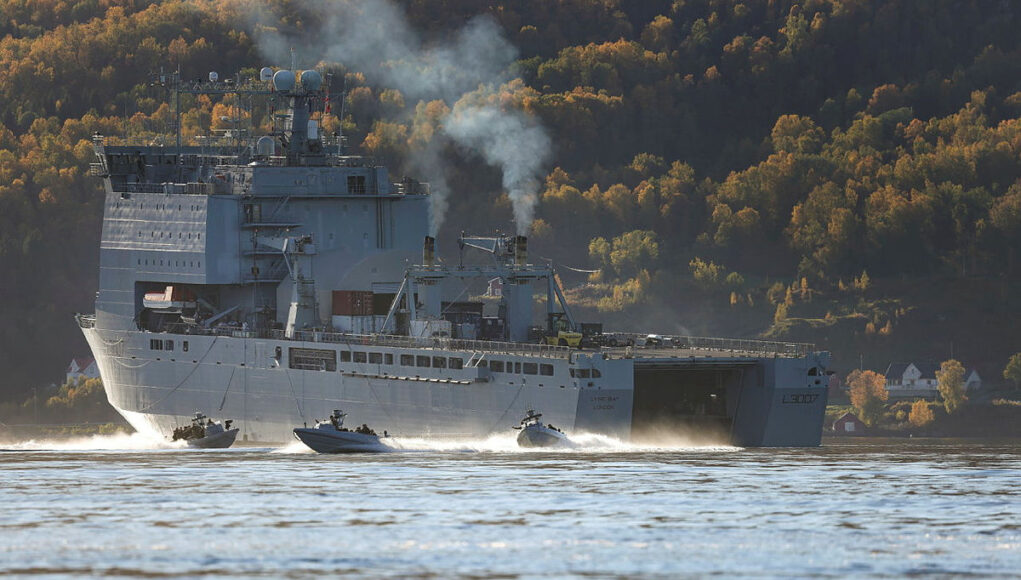
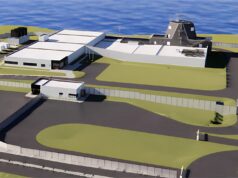
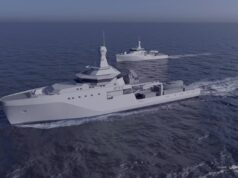
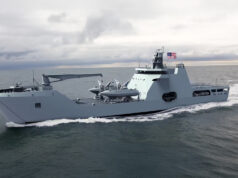
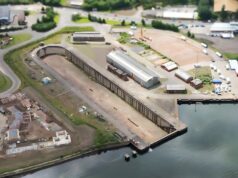

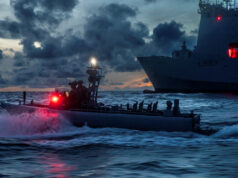
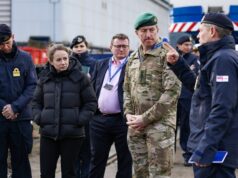
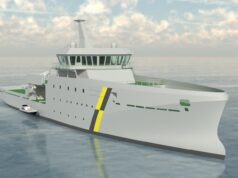



I’m guessing Albion and Bulwark would of come in handy?
“Man the Pumps”
Good to hear that Lyme Bay is out of maintenance and already back in action.
But She’s bloody sinking.
Must be that Leek again.🤽♀️🏊♂️🏄♂️
Are there reports of leaks? I can’t find any.
Oh gawd.
See Jon, It’s like this, The article picture shows her down at the stern (obvious she is built to do that) I was just making a typical Halfwitted remark about sinking.
Leeks are Veg, various articles some time back mentioned Leaks/leeks when a QE Sprung one.
I just lumped the two together in a simple (non) humourous fashion.
Great to see Albion and Bulwark perform….Oh…Wait.
Good to see we haven’t totally got out of the amphib game although it’s pretty much tokenism without the LPD’s
There was talk some years ago of converting one of the bay class into a ‘LSS’. Now we have lost Albion and Bulwark i think it is more important than ever to increase ability/capacity of the Bays. A permanent hanger would be the most obvious way to increase the utility of these vessel’s! Not sure if there is any way to increase the well dock for a second LCU or addional LCVP but it sounds very expensive if there is? Maybe some davits on the side for lighter CIC? Would these additions make it an effective ‘LSS’ or still just a token amphib force until the (up to 6 but likely 3 if any) MRSS comes into service in the 2030’s?
Not going to happen. The LSS concept is baisically dead in the water as it stands. All the funding will go to MRSS as it comes online.
Would this not be a good way to increase amphib capacity in the 5/6 year wait for the first MRSS? Otherwise with the decommission and selling of the Albions we are reduced to three very low capacity Bays?
There was me thinking that this sort of thing wasn’t relevant anymore hence we didn’t need the Albions…..must have misheard!
No you didn’t mishear, amphibious warfare is obsolete according to some.
UK displaying “power projection” again with an advanced amphibious warfare capability. Mind, looks good for ignorant defence blind punters who read the Express.
I am in no way knocking the RN’s performance here but i feel like im living in a fantasy world sometimes with this rhetoric coming out of HMG and MOD. We are ‘framework nation’ on a ‘large multinational amphibious exercise’ with 10 other JEF nations when it is blindingly obvious that we only have marginally more capability than most of the other JEF who have zero usable amphibious resources themselves (with a few exceptions).